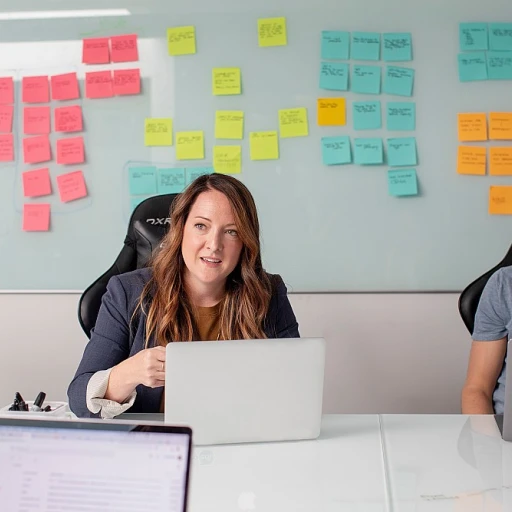
Understanding the Role of a Dental Hygienist
Delving into the Dental Hygienist Role
In the ever-evolving field of dental hygiene, understanding the core responsibilities of a dental hygienist is crucial for anyone preparing for an interview. As a dental hygienist, your role within the dental team is multifaceted and integral to ensuring high-quality patient care and oral health.
A dental hygienist's daily tasks include performing oral hygiene assessments, educating patients on proper oral health practices, and providing individualized patient education to prevent dental diseases. You're expected to possess strong technical skills in infection control and be skilled in administering periodontal and prophylactic treatment. Attaining competence in these areas goes hand in hand with the expectations of a potential employer.
Moreover, understanding the dynamics within a dental office setting is vital. Good communication with the dental team and directing the work flow effectively ensure that patients receive consistent care. Attention to detail is essential, not only in performing precise dental procedures but also in managing patient records accurately.
Having a strong foundation in these areas will guide you in addressing questions efficiently during hygienist interview processes. Experience in these responsibilities will equip you with the confidence needed to discuss your work experience effectively and demonstrate how you can contribute positively to the dental practice. As you prepare for your interview, it's important to reflect on these facets of the job to align your responses with the expectations of potential employers understanding the impact of employee benefits on total employment compensation may also play a critical role in your decision-making process.
Common Interview Questions and How to Tackle Them
Preparing for Common Interview Questions
When stepping into a dental hygienist interview, it's crucial to be ready for a variety of questions that will assess your skills, experience, and fit for the dental team. Understanding the role of a dental hygienist is just the beginning. Let's delve into some common interview questions and how you can effectively tackle them.
Questions About Your Experience and Skills
Interviewers often start by asking about your work experience and specific skills related to dental hygiene. Be prepared to discuss your experience in patient care, infection control, and oral hygiene education. Highlight any unique skills you bring to the table, such as attention to detail in identifying periodontal disease or your ability to ensure patient comfort during procedures.
- "Can you describe your experience with patient care?" – Share specific examples of how you've provided high-quality care and maintained oral health standards.
- "How do you handle infection control in the dental office?" – Discuss the protocols you follow to ensure a safe environment for both patients and the dental team.
Behavioral Questions
Behavioral questions are designed to assess how you handle real-world situations. These questions will often require you to draw on past experiences to demonstrate your problem-solving skills and ability to work under pressure. Preparing for these questions will help you articulate your thought process and actions effectively.
- "Tell me about a time you had to deal with a difficult patient." – Explain how you managed the situation, ensuring patient satisfaction while maintaining professional standards.
- "Describe a situation where you had to work as part of a team." – Highlight your ability to collaborate with other dental hygienists and the broader dental team to achieve common goals.
Technical Knowledge and Skills Assessment
Technical questions will test your knowledge of dental procedures and your ability to apply this knowledge in a practical setting. Be ready to discuss specific techniques you use in oral hygiene and how you stay updated with the latest advancements in dental care.
- "How do you stay informed about new developments in dental hygiene?" – Mention any continuous learning initiatives you undertake, such as workshops or courses, to enhance your skills.
- "What techniques do you use to educate patients about oral health?" – Describe your approach to patient education and how you tailor your communication to different patient needs.
Preparing for these questions not only boosts your confidence but also demonstrates to your potential employer that you are committed to providing excellent patient care and contributing positively to the dental office. For more on preparing for interviews, consider exploring effective strategies for training new hires to further enhance your readiness.
The Importance of Continuous Learning in Dental Hygiene
Emphasizing Lifelong Learning in Dental Hygiene
In the field of dental hygiene, the commitment to lifelong learning is paramount. This dedication not only enhances your expertise but also ensures that you offer the best possible care to your patients. As a dental hygienist, keeping up with the ever-evolving landscape of oral health care, from new infection control protocols to advances in periodontal disease treatment, is crucial. Continuous learning empowers you to improve your technical skills and patient education, ultimately contributing to high quality patient care. The dental hygiene profession requires staying current with the latest research and technological advancements to deliver effective oral hygiene strategies to your patients. Regularly attending seminars, workshops, and dental conventions not only broadens your knowledge but connects you with the dental team community for shared learning experiences. Employers highly value candidates who proactively pursue professional development. Demonstrating a commitment to continuous learning in interviews indicates initiative and a desire to deliver exceptional care, which is an attractive trait for potential employers. Showcasing recent courses or certifications is an effective way to illustrate this to interviewers, making you a standout candidate. Utilizing a comprehensive approach to enhance your expertise can make a significant impact. You can explore your potential in areas such as: Enhancing Your Learning Journey with a 360-Degree Workflow. This holistic approach provides a structured pathway to build and update your skills effectively. While excelling in technical knowledge is necessary, developing soft skills through continuous learning is equally important. Attention to detail, effective communication, and teamwork are essential in ensuring patient satisfaction and positive health outcomes. Preparing yourself through mock interviews as outlined can further boost your confidence and readiness for real-world scenarios. Continuous learning equips you with the ability to adapt to the dynamic demands of a dental office environment with assurance and competence.Behavioral Questions and How to Prepare
Preparing for Behavioral Questions
Behavioral questions in a dental hygienist interview are designed to assess how you handle real-world situations in the dental office. These questions often focus on your past work experience and how you have dealt with various scenarios. The goal is to ensure that you possess the necessary skills and mindset to provide high-quality patient care and work effectively within the dental team.
When preparing for these questions, consider the following strategies:
- Reflect on Past Experiences: Think about specific instances where you demonstrated your ability to manage patient care, maintain oral hygiene standards, or address periodontal disease. These examples will help you illustrate your skills and experience effectively.
- Use the STAR Method: Structure your responses using the Situation, Task, Action, and Result framework. This method helps you provide clear and concise answers that highlight your problem-solving abilities and attention to detail.
- Practice with Mock Interviews: Conducting mock interviews can build your confidence and help you articulate your experiences more fluently. This practice will also prepare you for potential follow-up questions that may arise during the actual interview.
Behavioral questions may cover a range of topics, from infection control practices to patient education techniques. By preparing thoroughly, you can demonstrate to your potential employer that you are equipped to handle the challenges of the job and contribute positively to the dental office environment.
Technical Knowledge and Skills Assessment
Technical Expertise and Knowledge Evaluation
For any dental hygienist, showcasing technical expertise and comprehensive knowledge is essential during an interview. A potential employer will carefully assess these skills to determine if you are well-equipped to provide high-quality patient care and contribute effectively to the dental team. During interviews, it is common for candidates to face questions centered around their understanding of oral health practices and hygiene techniques. Here’s how to prepare:- Comprehensive Oral Knowledge: Ensure you have a strong grasp of oral anatomy, periodontal disease, and infection control principles. This knowledge is crucial when explaining your experience managing oral health situations in a dental office setting. Addressing how you fill gaps in patient education about proper oral practices can demonstrate your command of relevant skills.
- Hygiene and Care Techniques: Interview questions may delve into your methods for maintaining patient comfort while performing procedures like scaling or polishing. Describe your familiarity with using various tools and technologies and your attention to detail when ensuring the precision of your work.
- Practical Experience: Drawing on past work experience, highlight moments where your technical skills significantly improved patient outcomes. Focus on examples that showcase your ability to manage time effectively and work under pressure while maintaining hygiene standards.
- Team Collaboration: Your role as a dental hygienist often includes working closely with the rest of the dental team. Share experiences that demonstrate your ability to collaborate, share insights, and contribute positively to team dynamics.
Building Confidence Through Mock Interviews
Boosting Confidence with Practice Sessions
Preparing for a dental hygienist interview can be daunting, but building confidence through mock interviews is a proven strategy. Mock interviews simulate the real interview environment, allowing you to practice responding to questions about dental hygiene, patient care, and your work experience. This preparation is crucial for ensuring you can articulate your skills and experience effectively.
Mock interviews help you become familiar with common interview questions. For instance, you might be asked about your approach to patient education or how you handle infection control in a dental office. Practicing these responses will help you convey your attention to detail and commitment to high-quality patient care.
Simulating Real Interview Scenarios
During mock interviews, it's beneficial to simulate real scenarios you might encounter in a dental office. This includes discussing how you would manage patient interactions, address oral health concerns, and collaborate with the dental team. By practicing these scenarios, you can demonstrate your ability to ensure patient satisfaction and maintain proper oral hygiene standards.
Additionally, mock interviews can help you prepare for behavioral questions. These questions often explore how you handle challenges, such as managing time effectively or dealing with difficult patients. By preparing thoughtful responses, you can showcase your problem-solving skills and adaptability, which are essential for a successful career in dental hygiene.
Feedback and Continuous Improvement
Receiving feedback from mock interviews is invaluable. Constructive criticism helps you identify areas for improvement, whether it's refining your communication skills or enhancing your technical knowledge about periodontal disease and oral health. This feedback loop is a critical component of continuous learning, allowing you to fill gaps in your knowledge and improve your interview performance over time.
In conclusion, mock interviews are an excellent way to build confidence and prepare for a dental hygienist interview. By practicing your responses, simulating real scenarios, and seeking feedback, you can ensure you're ready to impress potential employers and secure the job you desire.













